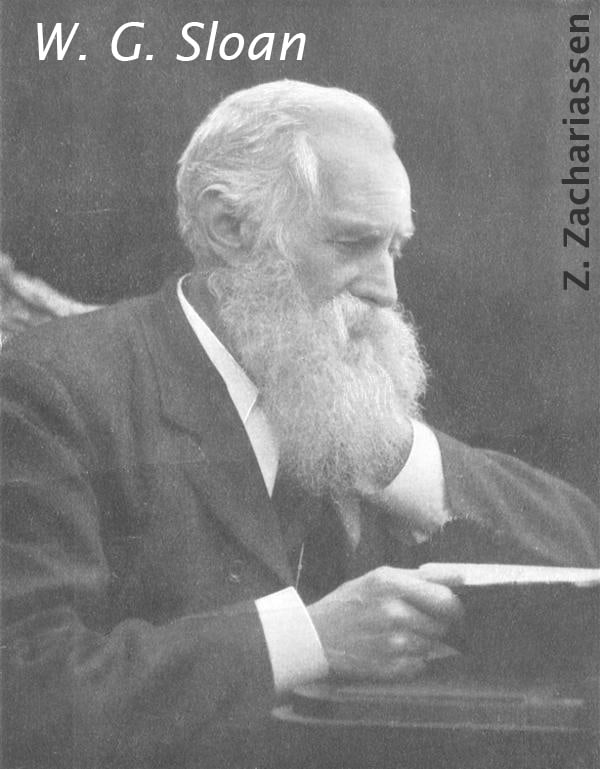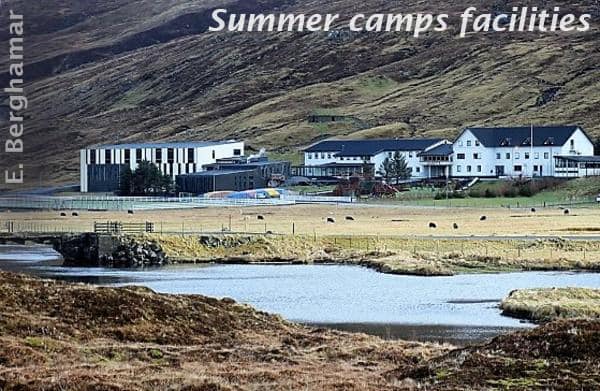The Faroe Islands lie about 180 nautical miles north west of the Shetlands. Recent archaeological digs suggest long-term settlements were established there in the 4th century AD.
These were probably from Celtic people — suggested by today’s place names and hand-sized, stone crosses. Around 860AD the Vikings arrived, which brought the Faroes under Norway.
In 999AD the Catholic Church from Norway was introduced, but, around 1536, the Faroes along with other Nordic countries became Lutheran. In 1814 the Treaty of Kiel made the Faroes part of Denmark.
Changes
During the early- to mid-1800s its 1,400-year-old, agriculturally based society was giving way to a culture based on fishing. Before this, the islanders had used open fishing boats in the manner of small Viking ships, but now entrepreneurially minded Faroese were learning fishing skills from other countries and bought fishing smacks from Scotland and England, to be used further north, near Iceland and Greenland.
At the same time, a nationalistic spirit brought with it a desire to unshackle the Faroes from centuries-old Danish control. Change was in the air, and one of the biggest changes was about to come from Scotland.
On 4 September 1838, William Gibson Sloan was born in Dalry, Scotland. Twenty-three years later he was, by the grace of God, saved. He became an evangelist, visiting the Shetlands with books for the Religious Tract and Book Society of Scotland. During this time he heard about the Faroes from Shetland fishermen and felt he ought to minister to the spiritual condition of the 8,000 Faroese inhabitants. So, in summer 1865, he boarded a Shetland fishing smack and headed for the Faroes.
William had learnt Danish and in the mid-twentieth century there were still older Faroese alive who recalled with fondness how William put his hand on their heads and said in Danish, ‘Dear children, believe in Jesus’.
William Sloan travelled extensively to just about all the villages, preaching the gospel. At times, he was ill-treated and asked to leave, and this was his lot for 13 years. There were no spiritual results, but he remained faithful to his Master.

Then, in 1878, the first Faroese person responded to the message of God’s grace. A year later the first Brethren meeting hall was built, and the following year the first person was baptised. The assembly now began taking the bread and wine of the Lord’s Supper together.
Gradual establishment
Rather than the opposition subsiding though, it intensified. But God was not done with the Faroes and, a year later, four people were saved, among whom was one who was to become William’s wife.
Twenty years after this there were between 4 and 6 Brethren assemblies in the islands. William persisted in evangelism, spurred on by his Lord and Saviour. He would walk for hours visiting homes and have small boats ferry him from one island to another, to bring the precious gospel message to the Faroese.
On the day he turned 76, William’s life ministry was over. In his last moments, he was heard quoting the well-known hymn line, ‘On Christ the solid rock I stand, all other ground is sinking sand’.
It has been said that, because of William’s gentle and gracious personality, the Brethren assemblies in the Faroese took on characteristics all of their own. A small but self-propagating church had been born, and in the following decades blessings would continue to flow through them. Truly William’s was a life well lived!
In 1887 a young Faroese man stood listening to an open-air meeting in Glasgow. His name was Daniel. J. Danielsen, nicknamed ‘Dollin’. He was converted and went to the Belgian Congo as a missionary, where he played a vital part in countering oppression of the poor.
Mr Danielsen returned to the Faroes due to poor health and joined the work of the assemblies there in 1904. He played a vital part in the propagation of the gospel in the Faroes until his death at the age of 45.
Rapid growth
Shortly after William Sloan’s death in 1914, his son Andrew Sloan, along with Victor Danielsen, a cousin of Daniel, stepped into the Lord’s service in the Faroes. Thanks to the faithfulness of the saints there, along with the capable ministry of these two men, the Lord’s work grew rapidly, especially in the 1920s and 1930s.
Andrew was an articulate teacher and Victor translated the Bible into Faroese and translated or wrote about 800 hymns. In addition, Victor translated and wrote 20 books, all the while visiting all the Faroes villages several times over.
Victor went to be the with the Lord in 1961 and Andrew in 1973. Around this time, a strong desire to engage in overseas missions took hold of the Faroese Christians, and full-time missionaries began ministering in Greenland, Iceland and Denmark. Others went to Bible school and undertook missionary training from different organisations.
What had begun with one humble Scotsman was now being multiplied over and again around the world. The Faroes have, by the grace of God, played a vital part in the propagation of the gospel to the farthest ends of the world.
Faroese missionaries have been instrumental in the direct establishing of indigenous churches and been in leadership positions in various mission organisations. Today about 50 people or families are involved in full-time service on the home front and overseas.

Summer camps
In the 1960s the assemblies began one-week summer camps for youngsters. This has since developed to include teenage camps, family camps, husbands’ and wives’ camps, men’s camps, women’s camps, handicapped camps, camps for individual local assemblies, and camps for theological study.
Many children have responded to God’s offer of salvation during these camps, some publicly and some quietly, and many Christians have been spurred on in their faith. Since Faroese Christians are not prone to talk about numbers, no records are kept, but an ongoing Christian influence throughout the Faroes bears testimony that God’s work continues. Today, around one in four children from each age group in the islands attend these camps.
The camps work on voluntary help. Year after year God faithfully provides teachers, and leaders, and those needed for the kitchen and for maintenance. It is with grateful hearts that we see many young children growing up to play vital roles in the assemblies, missions and Faroese society.
Realising the effectiveness of these camps, the Faroese assemblies have helped start similar camps in Iceland and two different ones in Greenland. In 1977 the assemblies provided a suitable boat for summer outreach along the coast of Greenland. This can only be done in the late summer weeks, taking advantage of the retreating ice. Tracts are handed out to families in the various towns and villages, and the locals are invited to open-air meetings or gospel meetings in town halls before the boat goes on to the next community. Many listeners look forward to next year’s visit with anticipation, and people have responded to the gospel.
This boat is also involved in missionary voyages to the Hebrides, Orkneys, Shetlands, Iceland and Norway. Tracts are carried to homes, and meetings are held either in the open or in village halls. I like to say that the Faroes’ most valuable export is the gospel! The social, educational, economic and political effects of this quiet revival are well portrayed in the book, Brethren in the Faroes, by Professor Tordur Joansson.
Cultural changes
Today, both the Faroes and Greenland enjoy autonomy within the kingdom of Denmark. The population, as of March 2017, has for the first time reached 50,000 people. It is a highly modernised nation with a well-developed infrastructure.
I left my home country in January 1980 and could not have foreseen the drastic cultural changes that would yet come. Television was introduced and this rapidly changed Faroese culture.
Before the advent of such media ‘getting together’ as families and friends was an integral part of the Faroese way of life. I recall, when growing up, how a couple of households frequently visiting my parents’ house for the evening. Stories were told, women knitted, children interacted, and so forth. Weddings in those days were all-night occasions, with dancing, speeches, continuous eating and plenty of liquor. People from other islands would lodge with someone else, if unable to return that day to their home island.
In many ways, church life in the islands has gone through a similar paradigm shift. Several annual conferences drawing up to 2,000 people were held around the islands. Older men who had walked with the Lord through a long life spoke with authority, much to the delight of us younger ones. Several choirs would give us a foretaste of heaven’s worship.
About 80 per cent of the population are now connected by roads, bridges, causeways, tunnels and subterranean tunnels (even a three-point subterranean tunnel with roundabout under the seabed is in its early stages). Many that could come to conferences can now enjoy the messages and songs via live-streaming. So there is less apparent need to spend the night and take meals with other saints.
New ideas
All these ‘improvements’ have brought us closer together geographically, but are having the opposite effect on fellowship. Exposure to global influences has brought an increased diversity of views and some fragmentation among Christians — including over styles of worship — even though of the same denominational background.
However, love for God’s Word is still there among the believers. I find the younger generation still getting excited when the pure Word is presented with conviction and power. Thank God, the upcoming generation still realises its responsibility to go global with the precious gospel message.
There have been so many changes and yet William Sloan’s footsteps are still very visible. I often wonder, what would have happened to me personally had William never come to the Faroes or had he not persisted against all the odds?
And what would have happened to several remote people-groups around this world if he had not kept going? One humble life in total reliance on his Lord and Saviour Jesus Christ, is still having world-wide influence: it is that of William Gibson Sloan (1838-1914).
Sonni Poulsen
The author works for New Tribes Mission at North Cotes, Lincolnshire
References:
Writings of Zacharias Zachariassen, full time worker
Dollin, Oli Jacobsen Zarepta
Fisherman of Faroe: William Gibson Sloan, Fred Kelling
Brethren in the Faroes: an evangelical movement, its remarkable growth and lasting impact in a remote island community, Professor Tordur Joansson (downloadable from http://theses.gla.ac.uk/3647)







